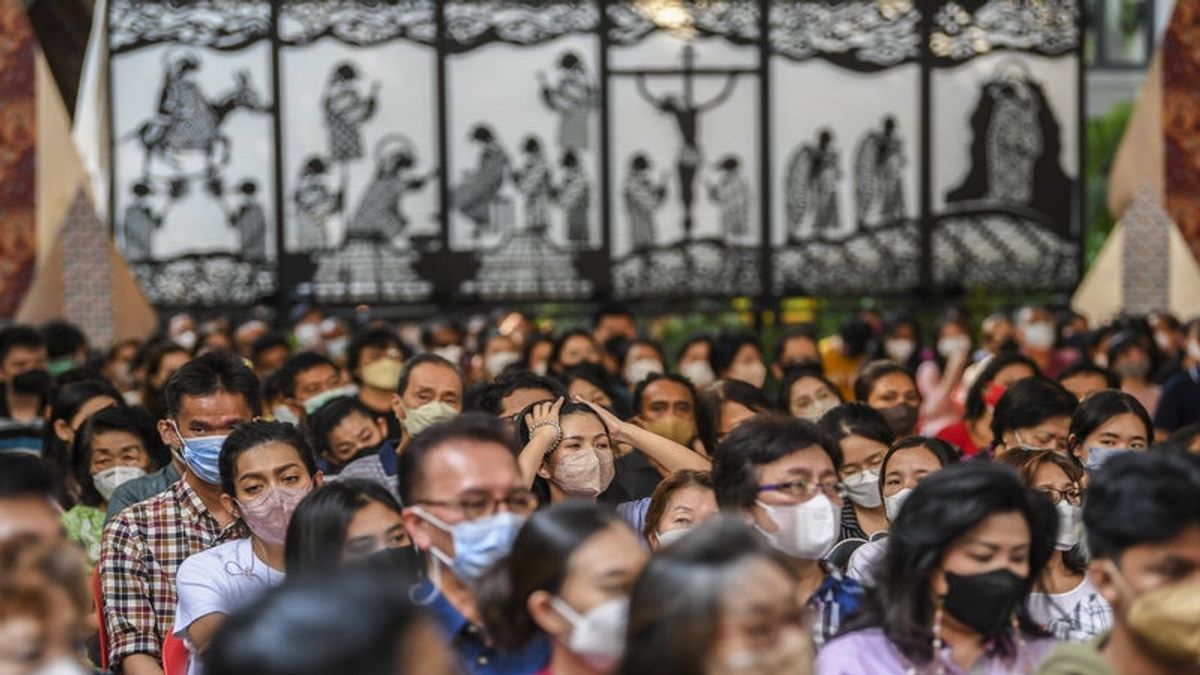JAKARTA – Easter is the oldest religious celebration in Christianity. Pope Leo the Great who led the Roman Catholic Church in 440-461 said Easter is a festus festorum or celebration of all celebrations. Here the Pope wants to emphasize the importance of Easter for Christians. He even said that Christmas was just a preparation for Easter.
Christians believe that Easter is the day of mankind's victory from sin. The victory was marked by the resurrection of Jesus Christ, three days after he was crucified on Golgotha.
Passover is actually also celebrated by Judaism, but in a different context. For Judaism, Passover is celebrated as the day the Jews were liberated from slavery in Egypt. But there are also similarities between the two, because the month of observance of Easter always falls in March or April.

Unlike Christmas which is always celebrated on December 25, Easter is never celebrated on the same date every March or April. This year Easter falls on April 17, three days after Christians commemorate Jesus' death on the cross on Good Friday, April 15.
Easter 2021 falls on April 4, following the celebration of Good Friday on April 2. Likewise at the Easter celebrations before and to come, the date is always changing. Of course, this will be followed by the next important celebration of Christianity, namely the Ascension of Jesus Christ or Isa Almasih to heaven which also changes the date.
Calendar DifferenceChristmas is based on the Gregorian calendar system, which refers to the revolution of the earth around the sun. This kind of calendar is also known as the solar calendar. While Passover still uses the Jewish calendar system, which was used before Jesus was born.
The calendar is based on the lunar calendar. Judaism celebrates Passover on the 14th day of the month called Nisan, the first month of the Jewish calendar. The Jewish calendar has 12 months in a year, but only 354 days.
The determination of Easter in the modern church was formulated at the First Council of Nicaea, which was convened by Emperor Augustine the Great in the City of Nicaea, Roman Empire in 325 AD. This council was the church's first attempt to find agreement, in an effort to resolve various disputes. Uniformity of the date of Easter celebration is one of them.

Differences arose around the 3rd century, when some Christian groups thought that the Jewish calendar was incorrect. According to them, the Jews mistakenly determined the days of Nisan, because the 14th day fell before the spring equinox. The equinox is a phenomenon when the sun is directly above the equator, so that the length of day and night is the same.
The equinox marks the arrival of spring in March. In summary, it can be said that Christians view that Easter falls after the 15th day of the new moon to coincide with the spring equinox, not before or the 14th day.
Since the First Council of Nikea, the polemic about the date of Easter has subsided, although there are still Christian sects that celebrate according to their respective traditions. Jewish Christians and Egyptian Orthodox Copts, for example, still observe Passover like the Jewish calendar. Or the contemporary Christian schools that have grown up in the United States, such as the Armstrong Movements Churches and the American Presbyterian Church, which consider the current Easter celebration to be taken from pagan traditions.
Quoted from the BBC, until 2009 again appeared the proposal to set a definite date for Easter. The issue of the date of Easter was then discussed by the World Council of Churches (World Council of Churches), a Christian inter-church organization that was founded in 1948. However, an agreement was not reached, and Easter is still celebrated with different dates as it is today.
The English, Chinese, Japanese, Arabic, and French versions are automatically generated by the AI. So there may still be inaccuracies in translating, please always see Indonesian as our main language. (system supported by DigitalSiber.id)









